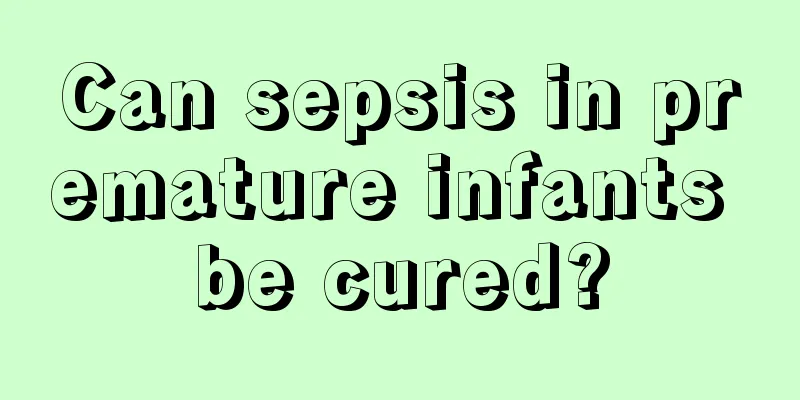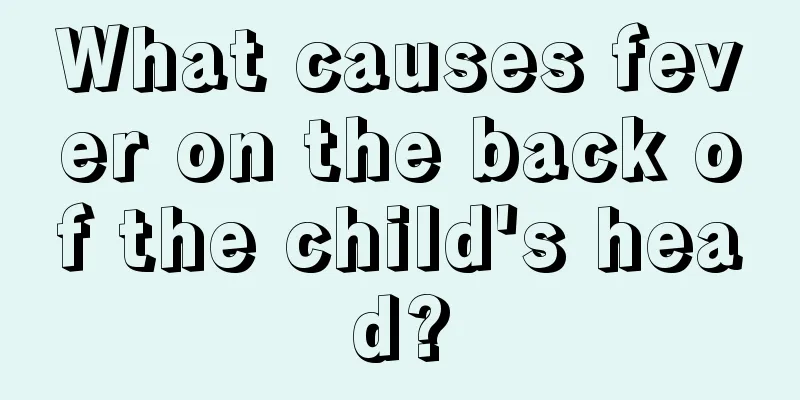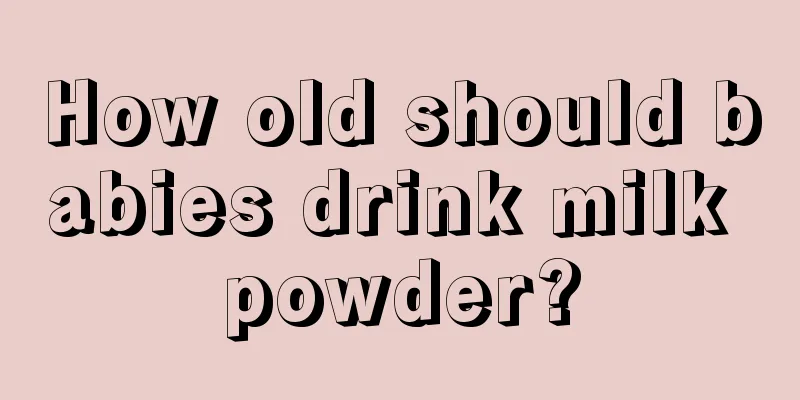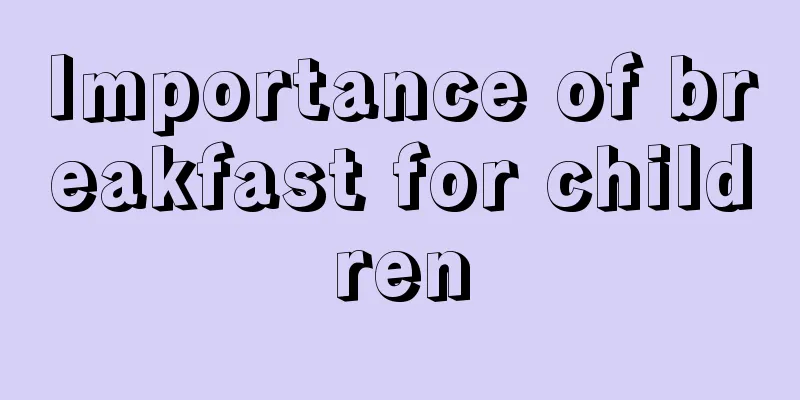What is the standard for a five-month-old baby?

|
The growth of the baby is a topic that every mother is very concerned about, and the baby's health is also what everyone hopes to see. When the baby is five months old, the baby will crawl and grow up slowly. Many parents don’t know what the standard for a five-month-old baby is, so the editor will give you a detailed introduction. 1. During this period, babies' facial features such as eyebrows and eyes also "grow", their faces become rosy and smooth, and they become more adorable. At this time, the baby has gradually matured, showing a lively and cute body, and the growth rate of height and weight has begun to slow down compared to before. At five months old, The weight of a male baby is 5.3 to 9.2 kg and the height is 60.5 to 71.3 cm. The weight of the baby girl is 5.0 to 8.4 kg and the height is 58.9 to 69.3 cm. Baby's 5th month: the play stage 2. Now he will take on a major challenge - sitting up. As his back and neck muscles gain strength and his head, neck, and torso develop balance, he begins to take the small step of sitting up. First, he needs to learn to raise his head and maintain the posture when lying on his stomach. You can let him lie on his stomach with his arms forward, and then place a bell or a conspicuous toy in front of him to attract his attention and induce him to keep his head up and look at you. This is also a good way to check his hearing and vision. At this point he can use his hands to put anything he's interested in into his mouth. You can lie on the bed and use your hands to support your whole body and help yourself into a sitting position. You can sit alone for a while, but sometimes you still need to support yourself with your hands in front of you. When picking up items, you no longer use both hands to pick them up, but use one hand. 3. Now they can tell the difference between red, blue and yellow. Don't be surprised if your child prefers red or blue; these seem to be the favorite colors for children of this age. At this point, your child's visual range can reach several meters and will continue to expand. His eyes can move up, down, left and right to pay attention to small things, such as snacks on the table; when he sees his mother, his eyes will follow her figure. At this point, your child will pay attention not only to the way you speak, but also to each syllable you pronounce. He will hear vowels and consonants and begin to notice the way they combine to form syllables, words, or sentences. Your child begins babbling with many of the rhythms and features of his or her native language, and even though it may sound like gibberish, if you listen carefully you will hear him or her raise and lower his or her voice as if he or she is making statements or asking questions. 4. Now, as your child's memory and attention strengthen, you will notice signs that he is not only taking in information, but also applying it to his daily life. At this stage he can understand an important concept - cause and effect. He may feel his crib rock when he kicks the mattress, or learn that a bell makes a sound when he hits or shakes it. Once he knows he's got these interesting things, he'll move on to other things and see what results emerge. In the first few months he thinks the world consists only of the objects he sees, when you leave the room he thinks you disappear, and when you come back you are a completely new person to him. Likewise, when you hide a toy under clothes or in a box, he thinks it's gone forever and won't bother looking for it. But around this time he begins to realize that the world is more permanent than he thought, that the same person is greeting him every morning, that the teddy bear on the floor is the same one that had been with him in bed the night before, that the things you hide don't actually disappear. Through games of hide-and-seek, or by watching the comings and goings of those around him, the child continues to learn the eternal principles of matter over the next few months. He is very interested in adults' faces. When you hold him in your arms, he will poke your eyes with his fingers and grab your glasses. When his name is called, he can turn his head and look in the direction of the voice. A 5.5-month-old baby will be happy when he hears the voice of his mother or a familiar person talking. He will not only smile but sometimes laugh out loud. At this time, the baby is a happy and lovable little person. The smile is now visible at all times, and, unless your baby is sick or unwell, a cheerful smile displayed for long periods of time every day will brighten your life and his life. This period is the time to consolidate the close relationship between baby and parents. The above introduces to you what are the standards for a five-month-old baby? I wonder if you know something about these. After knowing these, you can compare your child’s physical condition when he was five months old. In this way, if there is a problem, you can discover and deal with it in time, so that your baby can live a happier and healthier life. |
<<: What are the treatments for bedwetting in children?
>>: How much is the height and weight of a ten-month-old baby
Recommend
Is it good for children to have midnight feeding?
Children's stomachs are generally small and t...
What should I do if my child is deficient in zinc and iron?
Nowadays, if we pay a little attention, we can fi...
What are the symptoms and treatment of epilepsy in children?
Epilepsy is a common physical disease for many pe...
Can milk powder and eggs be eaten together?
Milk powder and eggs are both nutritious foods, v...
Symptoms of allergic rhinitis in children
There are many factors that cause allergic rhinit...
How to treat asthma caused by cough in children
Children's physical constitution is relativel...
When is it appropriate for children to have their teeth straightened?
We all know that childhood is the fastest growing...
Blood in the stool in children
With the continuous development of modernization,...
What are the benefits of eating honey for children with cough
Children's physical constitution and immunity...
What's the matter with the baby's nose having horizontal lines?
Generally speaking, infants and young children, e...
Is it necessary to test trace elements in children?
The biggest worry for every parent is the health ...
Things to note when your baby falls out of bed
It is very common for babies to fall out of bed. ...
Reasons why babies love to rub their eyes
I believe everyone must know the importance of ey...
What to do if your baby has diaper eczema
We all know that babies use diapers when they are...
What to do if your child is timid and afraid of people
Some parents are very worried about their childre...









